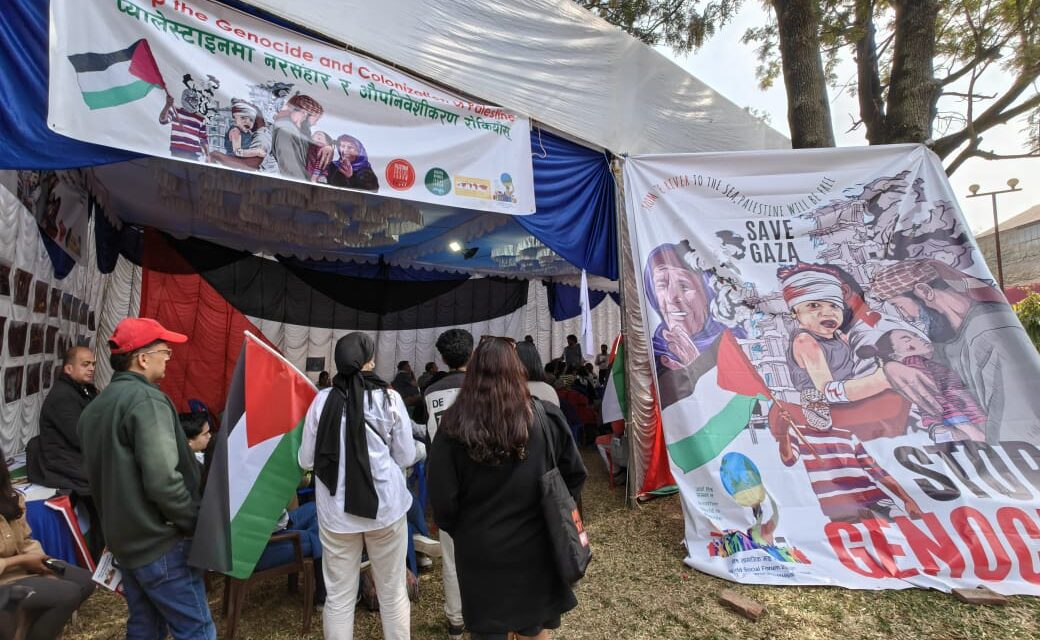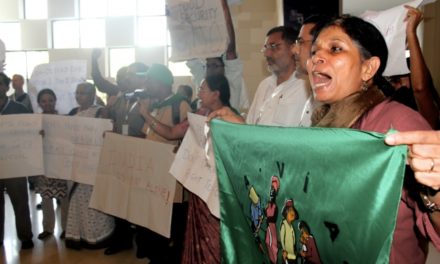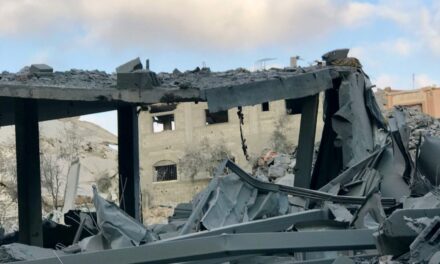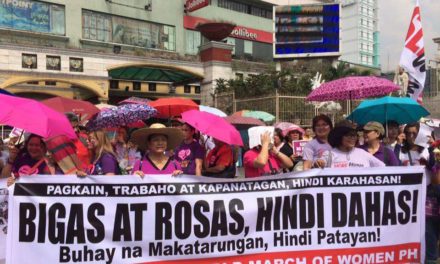2024 February 18
Today, on the 134th day of the ongoing genocidal war against all Palestinians in the Occupied Territories by Israel, the occupying power’s bombardment in the southern Gazan city of Rafah has killed more than 100 Palestinians. They add to the more than 2,500 Palestinians killed by the Israeli army since the recent ruling[i] by the International Court of Justice (ICJ) that determined that Israel is plausibly committing genocide and ordered Israel to undertake all measures within its power to end, prevent, and punish actions that could lead to or incite genocide in Gaza.
The overall death toll now stands at 28,858 Palestinians killed, 68,667 wounded, with many more being found day after day under the rubbles of Gaza, and many still unaccounted for since October 7. Hopes and possibilities of a ceasefire remain dim as Israeli Prime Minister Benjamin Netanyahu has rejected all terms proposed by Hamas and has instructed the Israeli military to draw up plans for a ground offensive in Rafah, the very place they had previously forced Palestinian civilians to vacate.
The UN High Commissioner for Human Rights Volker Türk has described the “terrifying” prospect of “some 1.5 million Palestinians [or two-thirds of the population] packed against the Egyptian border with nowhere further to flee (…) will likely be killed and injured.” The ground offensive in Rafah will certainly result in greater catastrophe than we have seen over the past months. In addition, some states from the global North[ii] have decided to either defund or pause payments to the UN Relief and Works Agency for Palestine Refugees in the Near East (UNRWA)—the only aid and relief agency able to operate in Gaza. These acts are tantamount to aiding and abetting genocide, and “immoral and irresponsible” as the UN Special Rapporteur on the Occupied Palestinian Territories Francesca Albanese has described.
The dire consequences of such decisions—severing the only lifeline and refuge for an entire population—cannot be emphasized enough: they are creating the conditions for an “inevitable famine” amidst the collective punishment of 2.2 million Palestinians, according to the UN Special Rapporteur on the Right to Food, Michael Fakhri. In their January 2024 report[iii], B’Tselem – The Israeli Information Center for Human Rights in the Occupied Territories – already warned that “about 93% of the population in Gaza (some 2.08 million people) were suffering from acute food insecurity at Phase 3 or higher, with over 15% (about 378,000 people) already at Phase 5 (Catastrophe/Famine)”.
The unfolding situation in Palestine has also opened the doors for an epidemiological and public health disaster, the “perfect storm for disease” as described by UNICEF Chief Spokesperson James Elder.[iv] With continued Israeli attacks on hospitals and healthcare services, Gaza has become a breeding ground for deadly diseases and mass death, and a site of daily violations of rights and dignity in which Palestinians are forced to live in such intolerable conditions. Firsthand testimonies from detained Palestinians from the Gaza Strip have also shed light on how they were subjected to torture and ill-treatment in Israeli jails, including “forced nudity, sexual harassment, and threats of sexual torture.”[v] Consequently, the lack of access to food, clean water, fuel, and medical supplies remains critically unaddressed with the continued demolition of entire neighborhoods, hospitals, schools, shelters, water and electricity networks, and other public infrastructures.
Pivotal decision by the World Court
Despite the historic ICJ ruling ordering immediate protective measures to protect Palestinians from irreparable harm, and for Israel to allow much needed humanitarian aid and basic services in Gaza, Israel is escalating its war on Palestinians, and destroying the very structures and systems that the provisional measures ordered by the ICJ seek to protect and restore. Israeli troops have continued their military assault with impunity, engaging in unrelenting and indiscriminate killing of Palestinians, and have intensified their aggression to restrict the entry of aid, with Netanyahu’s declaration that “Nobody will stop us – not The Hague, not the axis of evil and not anybody else.” This flagrant violation and abuse of international law is supported materially and ideologically by many wealthy nations of the North, as well abetted by many nations of the South, who are either remaining silent, or seeking economic opportunity in the midst of this genocide.
Notwithstanding, the ICJ judgement on the South Africa v. Israel dispute—recognizing the urgency “that there is a real and imminent risk that irreparable prejudice will be caused to the rights found by the Court to be plausible”—has ruled in favour of provisional measures, and has exposed the chinks in Israel’s armor of perceived “immunity.” Equally important, it has put Israel’s patrons from the global North under scrutiny and on notice about their obligations under the Genocide Convention, making it increasingly challenging for them to justify their complicity through continued supply of arms to Israel, vetoing UN Security Council resolutions calling for a ceasefire, and unqualified support for Israeli apartheid and genocide against the Palestinian people.
Moreover, the ruling has provided crucial tools for organizing and mobilizing people—whether in national courts, in congressional halls, or on the streets—to further expose the hypocrisy of their government officials and representatives—actively pressuring them to act decisively on their obligations, and holding them accountable for the double standards inherent in the positions they have taken. This involves, for example, naming and shaming the 210 legislators that signed a bipartisan letter addressed to US Secretary of State Antony Blinken[vi], expressing “disgust” at South Africa’s “grossly unfounded and dangerous allegations.” Another is the storm of criticisms thrown at proponents of a bipartisan bill calling for a “full review” of bilateral ties between Washington and Pretoria following the ICJ ruling.
The ICJ ruling can shift the position of governments that have previously remained silent or passive about the occupation of and war on Palestine, and impel them to translate verbal condemnations into concrete actions that would bring an end to genocide, war, occupation, and settler colonialism in Palestine. These concrete actions could include, among others: a complete arms embargo, bringing to justice all war criminals, imposition of diplomatic and economic sanctions on Israel, suspension of its membership in the UN and various international forums and events like the Olympics and FIFA—building on the lessons of history and how coordinated international action coupled with national resistance ended apartheid in South Africa. In a similar vein, international solidarity must also be sustained with the Palestinian-led Boycott, Divestment, and Sanctions (BDS), a global movement of unions, refugee networks, women’s organizations, academic and professional associations, churches, grassroots movements, and civil society pushing for non-violent forms of pressure on Israel since 2005.
Building on victories and peoples’ solidarity
Support for Israel’s genocidal war and unending illegal occupation is starting to fracture even among some of its backers from the global North. Last February 12, the Hague Court of Appeals, ruling on the case filed by Amnesty International, Oxfam, and various human rights organizations, ordered the Dutch government to halt all exports of F-35 fighter jet parts to Israel, noting “It is undeniable that there is a clear risk the exported F-35 parts are used in serious violations of international humanitarian law.” The ruling also prompted the High Representative of the European Union (EU) for Foreign Affairs and Security Policy Josep Borrell—despite the EU’s contradictory stance toward Israel and continued military support—to call on the US to cut arms supplies to Israel, citing high civilian casualties in Gaza and concerns over the looming Rafah ground offensive. In these desperate times of life and death, all these actions can only achieve significant impact with greater mobilizations of peoples all over the world, more intense, sustained civil society campaigns[vii] and pressure on governments from all constituencies and sectors across regions and globally, towards a convergence of actions that operationalise solidarity for Palestine in meaningful ways.
The ICJ needs the support and scrutiny of the ‘Peoples’ Court of Justice,’ i.e., the world’s people who are committed to justice, peace, self-determination and human rights in Palestine. We must build strong international solidarity to demand and compel our leaders to act to end the occupation, war and genocide with urgency. Our failure to act would mean the endangerment not only of Palestinians, but of all peoples across the world, pushing us towards an unjust international order and global injustice system, and worldwide apathy that sees oppressed peoples as passive, disempowered, and dehumanized subjects, forever doomed to a state of rightlessness in perpetuity, leaving them at the mercy of wealthy, superior-minded, racist, and warmongering elites.
In the words of the South African (SA) Boycott, Divestment, and Sanctions (BDS) Coalition: “International law alone cannot bring us justice. Only our relentless mobilisation to build people power can ultimately end international state, corporate and institutional complicity in Israel’s 75-year-old regime of settler-colonialism and apartheid and thus support Palestinian liberation.”[viii]
Thus, it is critical that we strengthen and continue to build on the various Palestine solidarity actions, public demonstrations, BDS campaigns, and efforts to pressure governments both in the global North and the global South. Solidarity actions in practice are outlined by Visualizing Palestine in their action resource tool kit[ix] including, among others: organizing spaces for popular education on the Palestine struggle, writing letters to the Congress and government leaders, fundraising activities to provide humanitarian aid, poetry reading, artistic initiatives and other cultural expressions of solidarity and resistance—which all come in different forms, depending on what is appropriate and possible in one’s local context and particularities.
As we gather at the World Social Forum in Kathmandu, Nepal, amidst the multi-dimensional crises and systemic challenges we face, we remain steadfast and united in our collective duty to stand in solidarity with Palestine and the Palestinian people. For their struggles are our struggles, too.
Let our demands as peace-loving, anti-war, and justice-upholding individuals, organizations, and movements in various peoples’ struggles reverberate in the corridors of power ever more strongly and urgently. All of us must become Palestinians in spirit!
May we continue cultivating the seeds of hope, justice, liberation, and peace.
—–
[i] International Court of Justice. (2024 January 26). Application of the Convention on the Prevention and Punishment of the Crime of Genocide in the Gaza Strip (South Africa v. Israel). The Hague. Retrieved from https://www.icj-cij.org/sites/default/files/case-related/192/192-20240126-ord-01-00-en.pdf
[ii] These include, among others: Australia, Austria, Estonia, Finland, Canada, Germany, Italy, Japan, the Netherlands, Romania, Switzerland, the United Kingdom, and the United States.
[iii] B’Tselem – The Israeli Information Center for Human Rights in the Occupied Territories. (2024 January 8). Israel is Starving Gaza. Jerusalem. Retrieved from https://www.btselem.org/gaza_strip/20240108_israel_is_starving_gaza
[iv] Masoud, B. and Salem, S. (2023 December 14). Gaza faces ‘perfect storm’ of deadly diseases. Reuters News Article. Palestine. Retrieved from https://www.reuters.com/world/middle-east/gaza-faces-perfect-storm-deadly-diseases-2023-12-14/
[v] Sneineh, M.A. (2024 February 6). ‘Operation Al-Aqsa Flood’ Day 123: New testimonies emerge of Israel torturing detained Palestinians in Gaza. Mondoweiss News Article. Palestine. Retrieved from https://mondoweiss.net/2024/02/operation-al-aqsa-flood-day-123-new-testimonies-emerge-of-israel-torturing-detained-palestinians-in-gaza/
[vi] The 2024 January 23 letter signed by 146 Republicans and 64 Democrats may be accessed at: https://chrissmith.house.gov/uploadedfiles/smith_manning_letter_to_sec._blinken_re._south_africa_claims_against_israel_at_ijc_1.23.24.pdf
[vii] Bello, W. (2024 January 27). Global Civil Society: The Way Forward Following the International Court of Justice’s Decision on South Africa’s Charge of Genocide against Israel. Emergency Conference of Global Intellectuals of Conscience. London. Retrieved from https://focusweb.org/global-civil-society-the-way-forward-following-the-international-court-of-justices-decision-on-south-africas-charge-of-genocide-against-israel/
[viii] South African Boycott, Divestment, and Sanctions Coalition. (2024 January 26). Apartheid Israel is Officially on Trial for Genocide: SA BDS Coalition Statement on the ICJ Order. Retrieved from https://web.facebook.com/SABDSCoalition/posts/pfbid02SHziP818bPM2U9ErSYQBEm1hMKB5YvAGadVpFWvt8dT4yGs38xQb3qmespnGBr6Ml
[ix] Visualizing Palestine. (2023 October 15). Take Action-Gaza Assault. Action Resource Tool Kit. Canada. Retrieved from https://docs.google.com/document/d/14vQUFWac8-u0Ixc-BekNLXYNbGB2mm2nKfS43QOBE9w/edit










